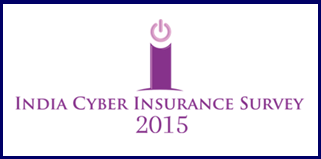Insurance is a means by which certain risks are transferred to an expert. All of us are familiar with Life Insurance, Health Insurance and Motor Vehicle Insurance. We take insurance because we know that a certain contingency needs to be covered. In the case of Motor Vehicle Insurance, part of the insurance namely damage to third parties is mandated by law while part is prompted by a need to cover a contingent loss in case of loss or damage to the insured asset or the insurer.
All of us who use a computer or a mobile in some form are exposed to the risks of Cyber Crime. We often hear that there are Bank frauds, Credit Card frauds or ATM card frauds. We also hear about reputation damage, broken marriages, lost jobs etc because of harmful content being posted on Face Book etc. These are Cyber Risks that haunt every Netizen and some times even those who never want to touch a computer.
Today the environment is adopting to use of technology at such pace that the users have little time to adapt. Also the technology developers have accepted that there is no “Safe” technology and push usage of products which are impregnated with “Vulnerabilities” often unknown to the creators themselves.
Commercial organizations adopt technology and use it for their service to customers because of the commercial advantages such as usage features and economy. They also push technology even before the risks on its usage are properly evaluated and safeguarded. For these organizations, it is a question of revenue and profits.
As a part of a natural progress in the society, technology is presently engulfing the area of Governance also. The Digital India concept indicates such a scenario where the Government will force adoption of technology on its citizens.
When individuals voluntarily adopt a technology, they assume the risks themselves. But when a Government forces adoption on its Citizens, there is a moral responsibility for the Government to ensure that citizens are pushed to levels of insecurity that they cannot withstand.
We know that some times we all have to take tough decisions in life and so is the Government when it has to take decisions on adoption of new technology with unknown risks.
But the Government can soften the potential damage through various measures. One such area is in the provision of “Cyber Insurance” as a cover for risks that may be generated with the increased adoption of technology by the society.
Over the last two days, deliberations were held at Bangalore under the aegis of the DSCI on building an Architecture for Digital India. During these deliberations the undersigned did raise the need to promote “Cyber Insurance For All”. While the industries readily agree that their own cyber risks can and should be insured at an affordable cost as a means of “Transfer of Risk”, there is some hesitation when it comes to taking a view on whether Cyber Insurance is required to be available to the public. The reason could be that there is an apprehension that cost of insurance would fall on the industry.
One of the questions which we need to answer is therefore “Whether Cyber Insurance is only a B2B product/service and not a B2C product/service”.
We would like to know what you think about this question. If you have a view on this, please participate in the India Cyber Insurance Survey 2015 and record your views on various aspects of Cyber Insurance. Your views can shape the future of Digital India.
To access the survey, visit here: India Cyber Insurance Survey 2015
Naavi







